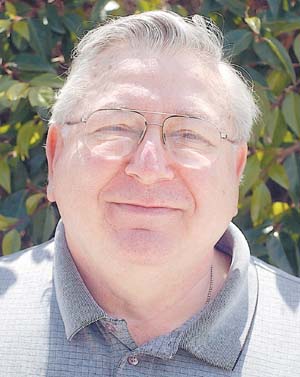America’s traditional newspapers are in serious financial
trouble; they are disappearing faster than free wine at a political
fundraiser. That’s unfortunate because newspapers can provide the
solution to California’s budget crisis
– if only the Governor and Legislature would take the time to
read them. Unfortunately, the politicians are always too busy
campaigning and paying off their supporters to do anything that
serious.
America’s traditional newspapers are in serious financial trouble; they are disappearing faster than free wine at a political fundraiser. That’s unfortunate because newspapers can provide the solution to California’s budget crisis – if only the Governor and Legislature would take the time to read them. Unfortunately, the politicians are always too busy campaigning and paying off their supporters to do anything that serious.
Last week California’s voters overwhelmingly rejected the five phony propositions promoted as a solution to our never-ending budget problems. It’s true that the recession has made things worse, but it’s critical to understand that things were already terrible. In a predictable reaction, the state has threatened Armageddon. It was reported that the cutbacks could include eliminating health coverage for poor children, halting cash grants for college students, shortening the school year, laying off thousands of teachers, closing state parks and releasing hoards of prisoners early. That’s a list designed scare the electorate and generate votes, not to fix the budget problem.
Notice that the state did not threaten to eliminate the billions in waste, fraud and abuse reported in the newspapers every day nor did they threaten to fix the public employee compensation system. Instead, they attacked programs for poor children; this tactic gives the politicians a “two for one” – they get to focus on poor children and ignore the real beneficiaries of state spending in one swipe. Since they cannot find the problems reporters stumble over daily, I can only surmise that they are not reading the papers.
Where does the money go? State employees benefit the most. According to the Office of the Legislative Analyst, the state workforce, including university employees, consists of approximately 363,000 personnel per year and the total annual payroll is now roughly $24 billion. Excluding university employees, another $11 billion of General Fund expenditures relate to personnel costs, including payroll and state contributions to employee pensions, health, and other benefits. That’s a total of $35 billion and averages $96,400 per year per employee.
Do not despair, the state has a program called Employee Compensation Reform and the Governor has reported the proposed savings for the 2009-2010 budget. The proposed savings were zero positions and minus $88,000. No, that is not a typo, the money saved by compensation reform was a minus number, and in other words, the reform program appears to have increased the state’s personnel costs by $88,000. Thank goodness for reform.
When it comes right down to it, there are only 121 key players in Sacramento, the governor, 40 California State Senators and 80 members the California State Assembly. Not one of them is famous for being a ferocious defender of the taxpayer’s dollar, but they all make sure that their political supporters are well taken care of and too often these are the recipients of most of the state’s money, public employees.
In addition to all the usual expenses, state and local jurisdictions will shortly be hit with increases in the mandatory payments to retirement funds to make up for the lower investment returns generated by the poor economic conditions, but neither the state or local governments are taking the opportunity to bandage these bleeding wounds.
I’m sure it will be pointed out that these platinum-plated benefits and retirement plans were agreed to in contract negotiations, to which I say – get serious. We live in a world where the federal government owns General Motors and AIG and decides who runs private companies and how they function. Contracts with private investors and private-sector employees are being shredded daily. Why should public employees be exempt?
Marty Richman is a Hollister resident. His column runs Tuesdays. Reach him at cw*****@***oo.com.










